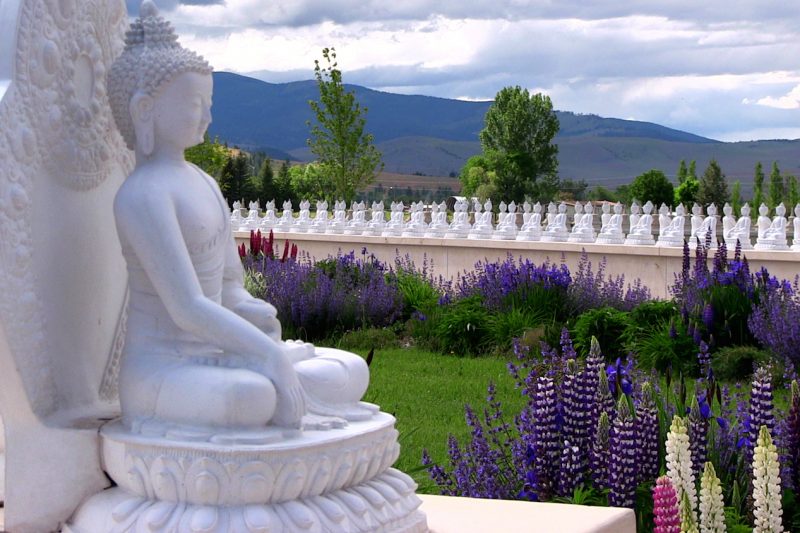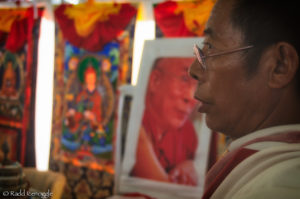
The Garden of One Thousand Buddhas hosts the annual Ewam Peace Festival.
In a divisive world, the 16th annual Ewam Peace Festival offers an opportunity to cultivate kindness and celebrate our shared humanity from 10 a.m.-6:30 p.m. Sunday, Sept. 10, at the Garden of One Thousand Buddhas, north of Arlee. This interfaith gathering aims to honor and highlight diverse cultures and music that integrate themes of love, humanity and peace.

Hosted by Ewam International, a non-profit organization under the guidance of founder and spiritual director Gochen Tulku Sang-ngag Rinpoche, the annual festival begins at 10 a.m., as visitors circle the garden during the Mile Walk for Peace.
A Celebration of Perseverance is the theme of this year’s event, which opens at 11 a.m. with a ceremonial procession, talks, prayers, and ritual offered by Buddhist, Islamic, Catholic and Native American spiritual leaders.
Ewam founder Tulku Sang-ngag Rinpoche gives a speech at 1:35, and the afternoon continues with music and performances by Tahj B Kjelland, Cami Cote, the Drum Brothers, Crazy Dogs and Tsering Lodoe. Sacred dances round out the gathering.
The festival also features art, craft and food vendors and an exhibition of Tibetan nomadic lifestyle, including yaks, a yak-hair tent, herders in traditional garb, and the making of Tsampa, Tibetan roasted barley flour.
The Garden of One Thousand Buddhas, located at 34574 White Coyote Road, is itself a testimonial to perseverance. The garden was founded in 2000 on the Flathead Reservation, homeland of the Confederated Salish and Kootenai Tribes, and was inspired by a vision of Tulku Sang-ngag Rinpoch. The garden itself took 16 years to complete, as the thousand concrete Buddhas were cast from concrete and eventually placed in eight spokes, emanating from a 24-foot statue of Yum Chenmo, the Great Mother.
The garden is open to people of all faiths “to come to pray with expanded minds. Ultimately our collective hope and prayer is that all sentient beings’ happiness is increased, that their sufferings are reduced, and that all the obstacles are removed and that everyone finds a path towards liberation,” writes its founder.
The festival is free, and all are welcome.